This section is for paid subscribers only. Our subscription is only $3700/- for one full year.
You get unlimited access to all paid section and features on the website with this subscription.
Subscribe to read full article
This section is for paid subscribers only. Our subscription is only $37/- for one full year.
You get unlimited access to all paid section and features on the website with this subscription.
Not ready for a full subscription?
You can access this article for $2, and have it saved to your account for one year.
- Release Date1968
- GenreDrama
- FormatColour
- LanguageHindi
- Run Time146 min
- Length4004 meters
- Number of Reels15 reels
- Gauge35mm
- Censor RatingU
- Censor Certificate Number55993- Mumbai
- Certificate Date24/12/1968
Leela Choudhary is an iron-fisted land-owner who ruthlessly exploits the peasants working on her lands. She is aided in this by the equally merciless Munimji. They realise that the members of the Harijan village have not paid their taxes yet. A couple of guards are sent to bring the leader of the Harijans to answer for this delay. Unlike Leela, her husband Shivnath is a poet and lover of art. He spends his time learning to play the dhol from Baiju Dholakia who is a member of the Harijan community. He empathises with their plight and refuses to respect the boundaries of caste. When the guards try to arrest one of the Harijans he drives them away. He is lovingly called Jogi Thakur by the villagers for his unconventional ways and his unwavering solidarity with them.
Shivnath wishes to leave his home but he restrains himself thinking about his young daughter Neena. He shares a very loving relationship with her and teaches her to sing the songs he has written. His relationship with his wife is strained as they often have quarrels about the way she manages the estate. He is unable to protect the Harijans for long though, as they are asked to pay the full amount of taxes soon. Shivnath steals some money from Leela’s coffers and donates it to the Harijans. But his trick is caught by their accountant and an incensed Leela orders the Munim to burn down the Harijan village. The Munim tricks Shivnath into signing the orders to commit the heinous act and proceeds to do it. During the commotion, Baiju’s daughter Rukmini is kidnapped by the Munim’s men. A disgusted Shivnath leaves home and goes off to Bombay. There he befriends a young girl also called Neena and spends his time entertaining children with his songs in a park. But Neena’s life is claimed by an illness, which makes Shivnath fear for his own daughter Neena. He returns to his home only to find his mentor Baiju half-crazed after losing his daughter.
One night he follows the Munim to an abandoned house where he witnesses him trying to rape Rukmini. Enraged, Shivnath strangles the Munim to death. Leela and her brother Mohan try to convince Shivnath to lie in court to avoid punishment. But his ideals compel him to tell the truth and he is sentenced with the charge of murder. He does not want his daughter to find out that he is a criminal and refuses to meet her. He spends his days filling a notebook with poems dedicated to Neena.
Years pass and Neena grows up to be a wonderful singer. She is in love with Biren, a young doctor who has recently been posted to the same jail where Shivnath is serving his sentence. Shivnath has been asked to serve in Biren’s quarters. His eloquence and poetic prowess quickly make Biren fond of him. One day Shivanth sees Neena visiting Biren and recognises her. But he learns that she hates criminals and hence refrains from revealing his true identity to her. Biren and Neena’s marriage is fixed and Neena wishes that her long lost father will come to bless her on that day. Shivnath overhears this conversation and is deeply conflicted. The night before their wedding he is taken seriously ill. Biren’s care helps him recover partly, but he is advised to take rest. He also learns that he is being granted an early release from prison. A determined Shivnath travels to his home town where he is recognised by the old Baiju. In the guise of a beggar, he fulfils Neena’s wish and blesses her. But when returning he is taken seriously ill and all the villagers recognise him. As word spreads, Neena arrives on the scene. Shivnath is finally united with his daughter as he takes his last breath under the open skies. As he dies, he passes on the book of poems to his daughter.
Cast
-
Ashok Kumar
Shivnath 'Jogi Thakur' Chowdhary -
Sanjeev Kumar
Dr. Biren -
Sumita Sanyal
Neena 'Bittu' S. Chowdhary -
Abhi Bhattacharya
Jailor -
Sajjan
Ramdas -
Veena
Leela S. Chowdhary -
Harindranath Chattopadhyay
Baiju 'Dholakia' -
Padma Kumari
Rukmini -
Brahm Bhardwaj
Shivnath's advocate -
Baby Deepali Kamat
Young Neena 'Bittu' S. Chowdhary -
Anil
Seated Lawyer
Crew
-
BannerFilm Enterprises, Bombay
-
Director
-
Producer
-
Music Director
-
Lyricist
-
Dialogues
-
Cinematography
-
Editing
-
Art Director/Production Design
-
Choreography
-
Production Controller
-
Make-up
-
Re-recordist/ Sound Mixing
-
Laboratory/ Processed atFilm Center, Bombay
-
Music CompanyH M V.
-
StillsColor Lab
-
Publicist/P.R. O.
-
Writer






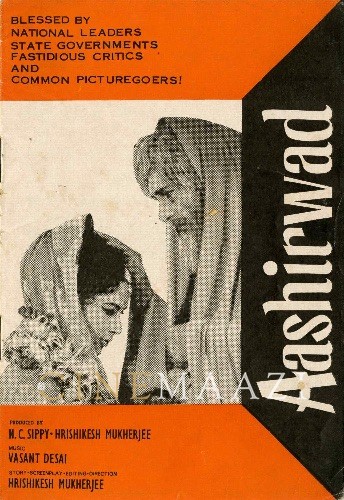

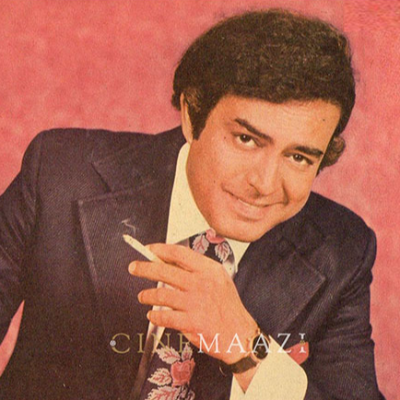
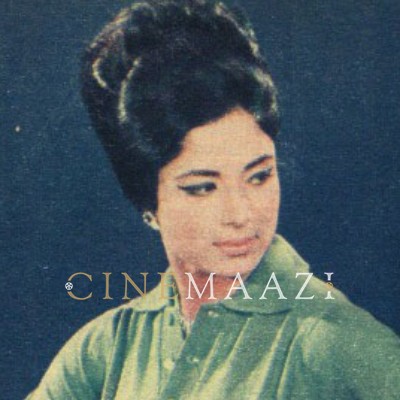
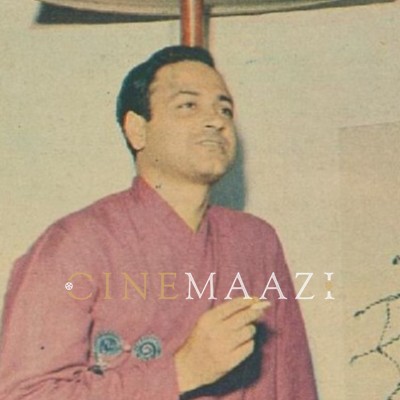
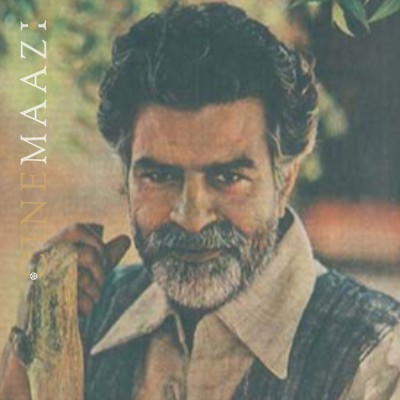

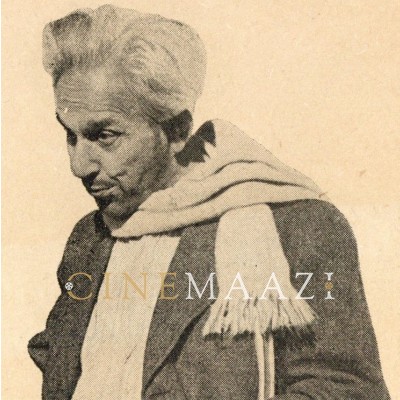

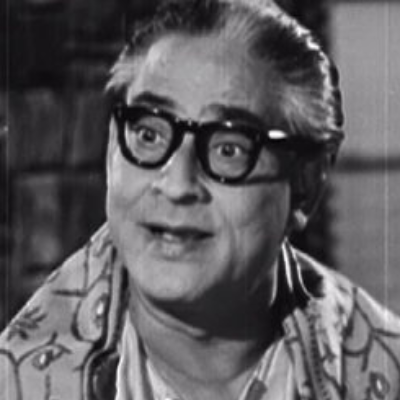

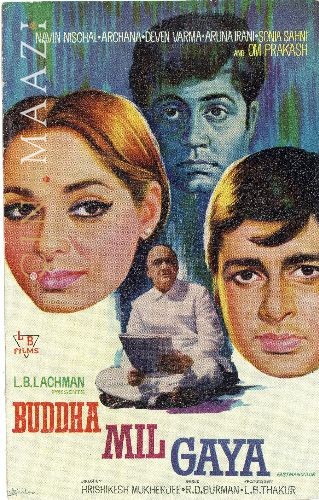


.jpg)



